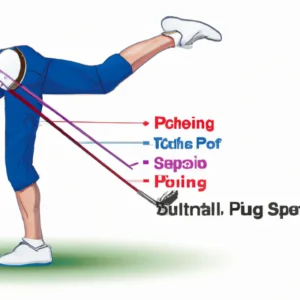Strength Training for Seniors: Tailoring Workouts to Enhance Mobility and Independence
Strength Training for Seniors: Tailoring Workouts to Enhance Mobility and Independence
Aging requires seniors to focus on mobility and independence. Strength training provides many benefits, including improved muscle mass and enhanced balance. This blog explores tailored workouts, nutrition tips, and health benefits of strength training for seniors.
The Importance of Strength Training
Strength training builds and maintains functional strength for daily activities. Seniors experience greater ease lifting groceries, climbing stairs, and standing from chairs. Research shows that regular strength training improves bone density, lowers fall risk, and enhances metabolic health. Therefore, seniors must incorporate strength training into their fitness routines to preserve independence and quality of life.
Overcoming Barriers to Exercise
Seniors often hesitate to start strength training due to injury concerns and a lack of knowledge. Education and tailored programs help address these barriers. Seniors can adapt strength training to any fitness level. They don’t need heavy weights; bodyweight exercises or light resistance can provide significant benefits. Consulting a healthcare provider or qualified trainer helps create a safe, effective workout plan.
Nutrition Tips for Strength Training
Nutrition supports strength training efforts. A balanced diet fuels workouts and enhances recovery, helping seniors achieve fitness goals.
Focus on Protein
Seniors should prioritize protein in their diets. Aging bodies require more protein to maintain muscle mass and promote repair. They should aim for a protein source in every meal or snack. Options include lean meats, omega-3-rich fish, beans, lentils, tofu, Greek yogurt, and cottage cheese. Aim for 1.0 to 1.2 grams of protein per kilogram of body weight, but individual needs may vary.
Stay Hydrated
Staying hydrated is essential for optimal performance and recovery. Seniors often forget to drink enough water, leading to fatigue and decreased performance. They should drink water before, during, and after exercise. Incorporating hydrating foods like fruits, vegetables, and soups also helps.
Include Nutrient-Dense Foods
A variety of nutrient-dense foods should fill the diet. Whole grains like quinoa, brown rice, and oats provide sustained energy. Fruits and vegetables offer essential vitamins, minerals, and antioxidants for overall health and recovery. Colorful options like berries, leafy greens, and cruciferous vegetables are particularly beneficial.
Conclusion
In summary, strength training enhances mobility, independence, and well-being for seniors. Prioritizing proper nutrition and hydration supports strength training efforts effectively.
Below are related products to the topic if you’re interested:
FAQ
1. What are the main benefits of strength training for seniors?
Strength training for seniors builds and maintains functional strength necessary for daily activities, such as lifting groceries and climbing stairs. It improves muscle mass, enhances balance, increases bone density, lowers the risk of falls, and supports metabolic health, ultimately preserving independence and quality of life.
2. How can seniors overcome barriers to starting a strength training program?
Seniors may hesitate to begin strength training due to concerns about injury and a lack of knowledge. To overcome these barriers, they can seek education on safe exercise practices and opt for tailored programs that match their fitness levels. They don’t need to rely on heavy weights; bodyweight exercises or light resistance can be effective. Consulting a healthcare provider or a qualified trainer can help in creating a safe and effective workout plan.
3. What nutritional tips should seniors follow to support their strength training efforts?
Seniors should focus on a balanced diet rich in protein to support muscle maintenance and repair, aiming for a protein source in every meal or snack. Staying hydrated is also crucial for performance and recovery, so they should drink plenty of water and consume hydrating foods. Additionally, including a variety of nutrient-dense foods, such as whole grains, fruits, and vegetables, will provide essential vitamins and minerals to enhance overall health and recovery.















Post Comment